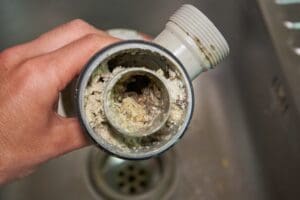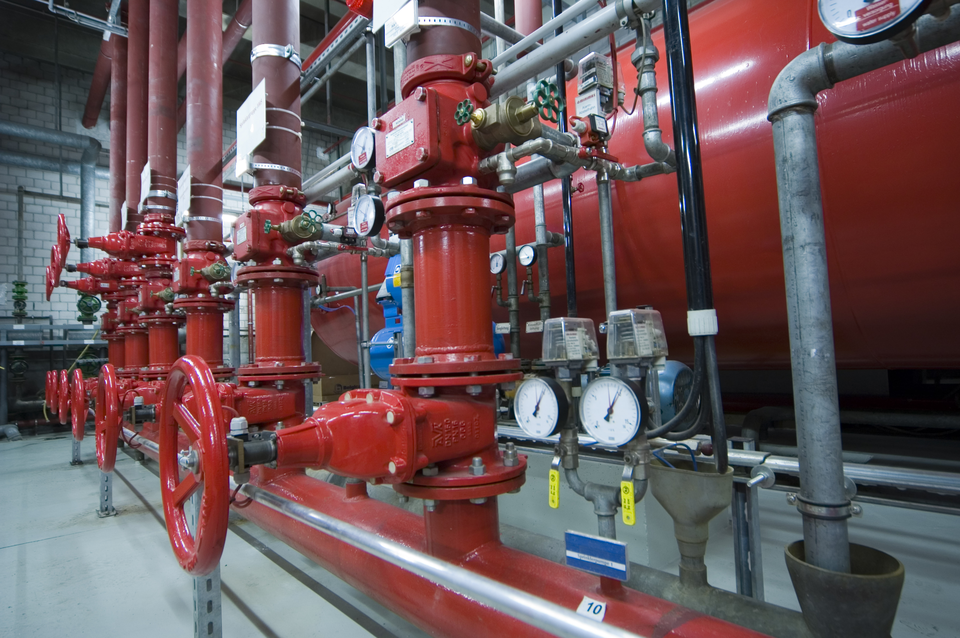Proven Techniques for Dealing with Low Water Pressure in Your Home
Proven Techniques for Dealing with Low Water Pressure in Your Home
Blog Article
We have found this article on 9 Reasons for Low Water Pressure in Your House listed below on the web and decided it made perfect sense to relate it with you here.

Low water stress in your house can be an irritating issue, affecting everything from bathing to washing meals. If you're experiencing weak water circulation, there are a number of feasible causes and remedies to check out. In this guide, we'll go over usual reasons for low water stress and sensible steps to deal with the issue efficiently.
Intro to Low Tide Stress
Low tide stress occurs when the flow of water from your faucets, showers, and other fixtures is weak than common. This can make everyday tasks much more tough and much less reliable. Recognizing the reasons for low water pressure is vital to discovering the ideal option.
Typical Reasons For Low Water Stress
Pipeline Obstructions
Gradually, pipelines can become obstructed with natural resource, debris, or particles, limiting the flow of water. This is a typical issue in older homes with galvanized steel pipelines.
Rust
Deterioration within pipes can lead to leakages and decreased water stress. Rust buildup can restrict water circulation, specifically in maturing plumbing systems.
Faulty Pressure Regulators
Pressure regulatory authorities are responsible for maintaining constant water pressure in your home. If they malfunction, it can lead to low tide pressure or irregular flow throughout your home.
Local Water Supply Issues
Often, the trouble exists outside your home. Municipal supply of water problems, such as main line leakages or upkeep job, can momentarily lower water stress in your location.
Exactly How to Identify Low Water Pressure
Examining Taps and Components
Begin by checking the water pressure at different taps and components throughout your home. If the problem is separated to certain areas, it may show localized problems.
Evaluating Pipelines
Examine noticeable pipes for indicators of leaks, corrosion, or obstructions. Take note of any uncommon noises, such as banging or rattling pipelines, which could show problems within the plumbing system.
Consulting with a Plumber
If you're unable to determine the cause of low water pressure, think about hiring a professional plumber to conduct a detailed inspection. They can determine underlying concerns and advise suitable remedies.
Do It Yourself Solutions to Fix Low Water Pressure
Cleansing Aerators and Showerheads
Mineral deposits can build up in aerators and showerheads, lowering water circulation. Get rid of and clean these components frequently to boost water stress.
Flushing Hot Water Heater
Debris accumulation in the water heater can restrict circulation and lower effectiveness. Purging the storage tank periodically helps get rid of sediment and maintain optimum efficiency.
Checking Stress Regulatory Authority
Make sure that the pressure regulatory authority is working correctly. Changing or replacing the regulatory authority can help bring back appropriate water stress throughout your home.
Cleaning Clogs in Pipes
For small clogs, try making use of a plumbing snake or chemical drainpipe cleaner to clear obstructions in pipes. Beware when using chemicals and comply with safety and security standards.
When to Call a Professional Plumber
If do it yourself efforts fall short to settle the problem or if you presume significant plumbing issues, it's ideal to look for help from an accredited plumber. They have the proficiency and devices to resolve complicated problems securely and properly.
Safety Nets to Keep Water Stress
Routine Maintenance
Schedule routine upkeep for your plumbing system to stop problems such as rust, leaks, and clogs. Addressing small issues early can assist avoid even more considerable repair work later on.
Mounting a Pressure Booster
Take into consideration setting up a pressure booster pump to boost water pressure in locations with consistently reduced flow. This can be particularly beneficial for multi-story homes or properties with high-demand components.
Monitoring Water Use
Bear in mind water usage routines and stay clear of overtaxing the plumbing system. Basic adjustments, such as staggering showers and washing loads, can assist maintain appropriate water stress.
Final thought
Managing low water stress can be aggravating, however identifying the underlying reasons and executing appropriate options can recover ideal flow throughout your home. Whether it's cleansing aerators, checking pipes, or talking to a plumber, taking positive actions can guarantee a consistent supply of water for your day-to-day needs.
FOUR WAYS TO FIX LOW WATER PRESSURE NOW
Turning on a shower or faucet only to find the water comes out in a sad, slow drizzle is never a good feeling. How exactly are you supposed to wash a pan or take a quick shower when it takes 10 minutes just to rinse off a little soap? The good news is that when your water pressure is bad, there's always a cause: typically one that can be easily fixed. Here are some of the most common causes of low pressure and what you can do to fix the issue:
DEBRIS AND MINERAL DEPOSIT BUILDUPS
If you notice low water pressure from just one or two of the fixtures in your house, the problem likely has to do with debris buildup. Water is full of minerals and other debris, all of which can accumulate in your pipes and on your fixtures. This can cause a blockage that affects how much water flows through. To fix this, try filling a small plastic bag with white vinegar, and use a rubber band to hang it around your showerhead or faucet. Let the head of the fixture soak for a few hours, and the vinegar should loosen the deposits.
WATER LEAKS
Leaks are another common cause of low water pressure. If water is flowing out of your plumbing through a hole or crack before it can reach your fixture, the pressure coming out of the faucet or showerhead will be lower. A plumbing professional is your best bet for finding and repairing a leak in your water supply pipes.
Leaks are another common cause of low water pressure. If water is flowing out of your plumbing through a hole or crack before it can reach your fixture, the pressure coming out of the faucet or showerhead will be lower. A plumbing professional is your best bet for finding and repairing a leak in your water supply pipes.
FOUR WAYS TO FIX LOW WATER PRESSURE NOW
Turning on a shower or faucet only to find the water comes out in a sad, slow drizzle is never a good feeling. How exactly are you supposed to wash a pan or take a quick shower when it takes 10 minutes just to rinse off a little soap? The good news is that when your water pressure is bad, there's always a cause: typically one that can be easily fixed. Here are some of the most common causes of low pressure and what you can do to fix the issue:
DEBRIS AND MINERAL DEPOSIT BUILDUPS
If you notice low water pressure from just one or two of the fixtures in your house, the problem likely has to do with debris buildup. Water is full of minerals and other debris, all of which can accumulate in your pipes and on your fixtures. This can cause a blockage that affects how much water flows through. To fix this, try filling a small plastic bag with white vinegar, and use a rubber band to hang it around your showerhead or faucet. Let the head of the fixture soak for a few hours, and the vinegar should loosen the deposits.
WATER LEAKS
Leaks are another common cause of low water pressure. If water is flowing out of your plumbing through a hole or crack before it can reach your fixture, the pressure coming out of the faucet or showerhead will be lower. A plumbing professional is your best bet for finding and repairing a leak in your water supply pipes.
Leaks are another common cause of low water pressure. If water is flowing out of your plumbing through a hole or crack before it can reach your fixture, the pressure coming out of the faucet or showerhead will be lower. A plumbing professional is your best bet for finding and repairing a leak in your water supply pipes.
A VALVE ISSUE
If you have low water pressure throughout your home, check your main shut-off valve to make sure it's completely open. You may also want to see if there's a pressure-reducing valve installed. If there is, have a plumber help you adjust the settings to get the pressure you're looking for.
OTHERS USING WATER
Believe it or not, your low water pressure could be caused by your neighbors. If you notice low pressure at certain times of day, it may be because you and the people living next to you have similar schedules - when everyone is showering at the same time, the pressure will be lower in every home. Low pressure throughout the neighborhood may also be caused by an issue with your municipal water supply. If that's the case, call the supplier to see if they're working on the issue.
https://www.rotorooter.com/blog/water-leaking/low-water-pressure-fixes/

Do you really like more info about 9 Reasons for Low Water Pressure in Your House? Post a remark directly below. We'd be happy to know your reactions about this article. We hope that you come back again soon. Kindly set aside a second to promote this content if you liked it. Thanks a bunch for being here. Come back soon.
Book Report this page